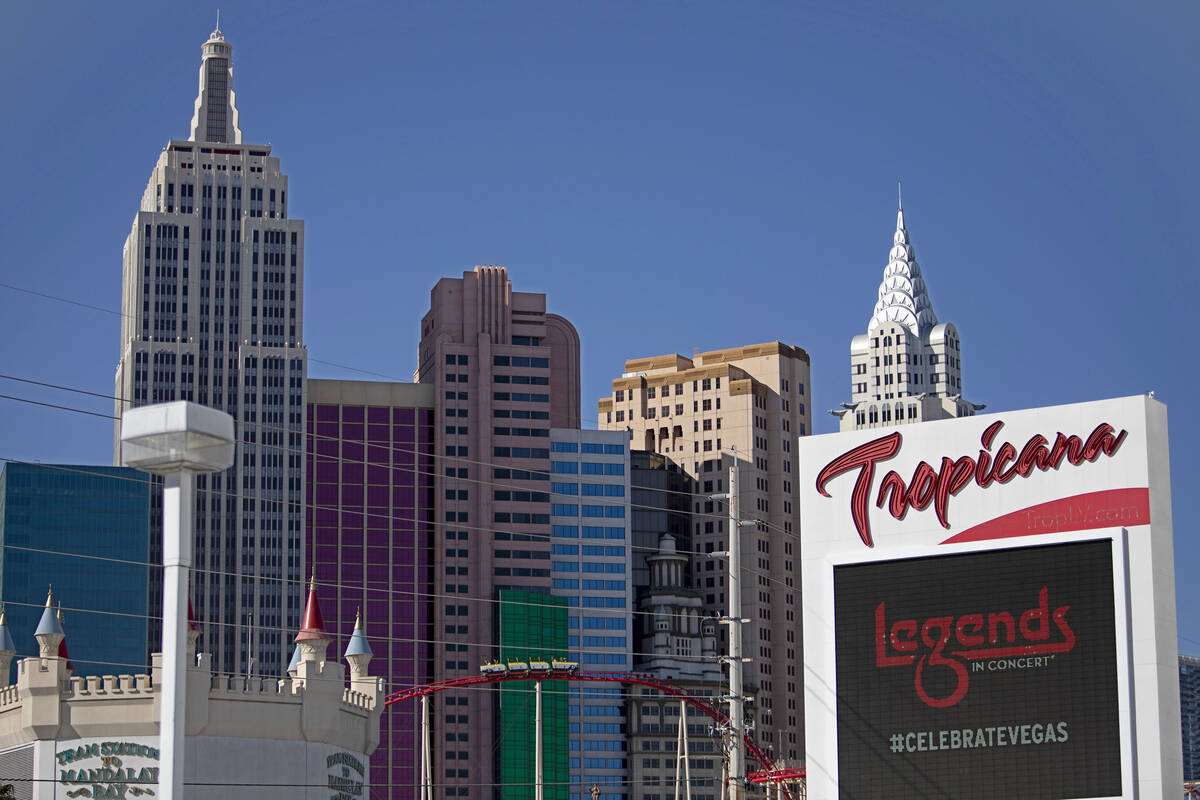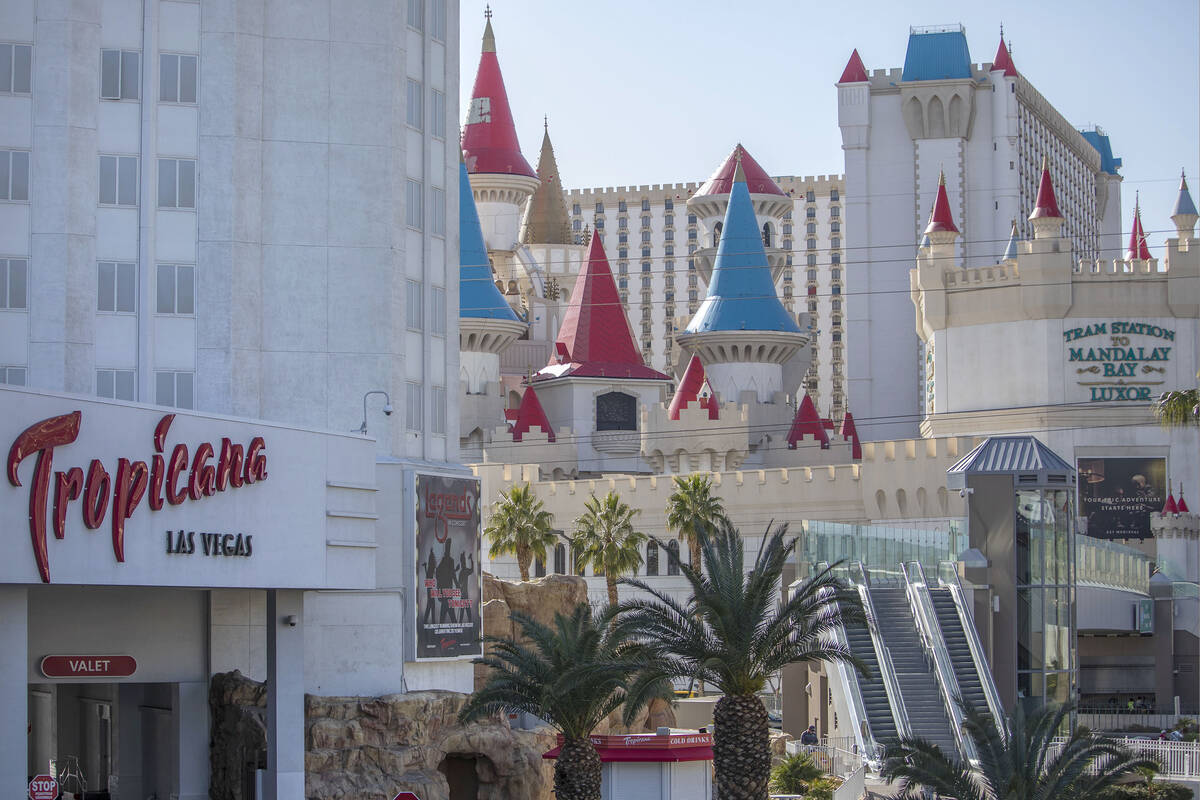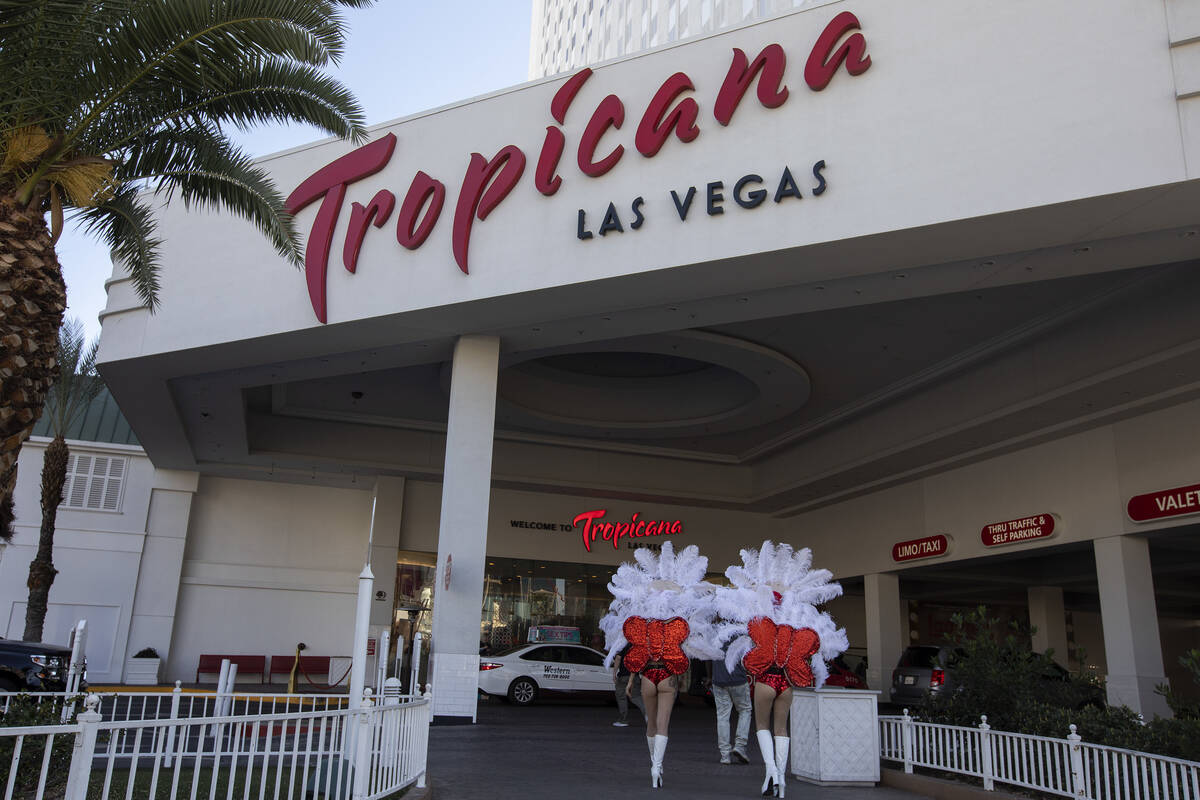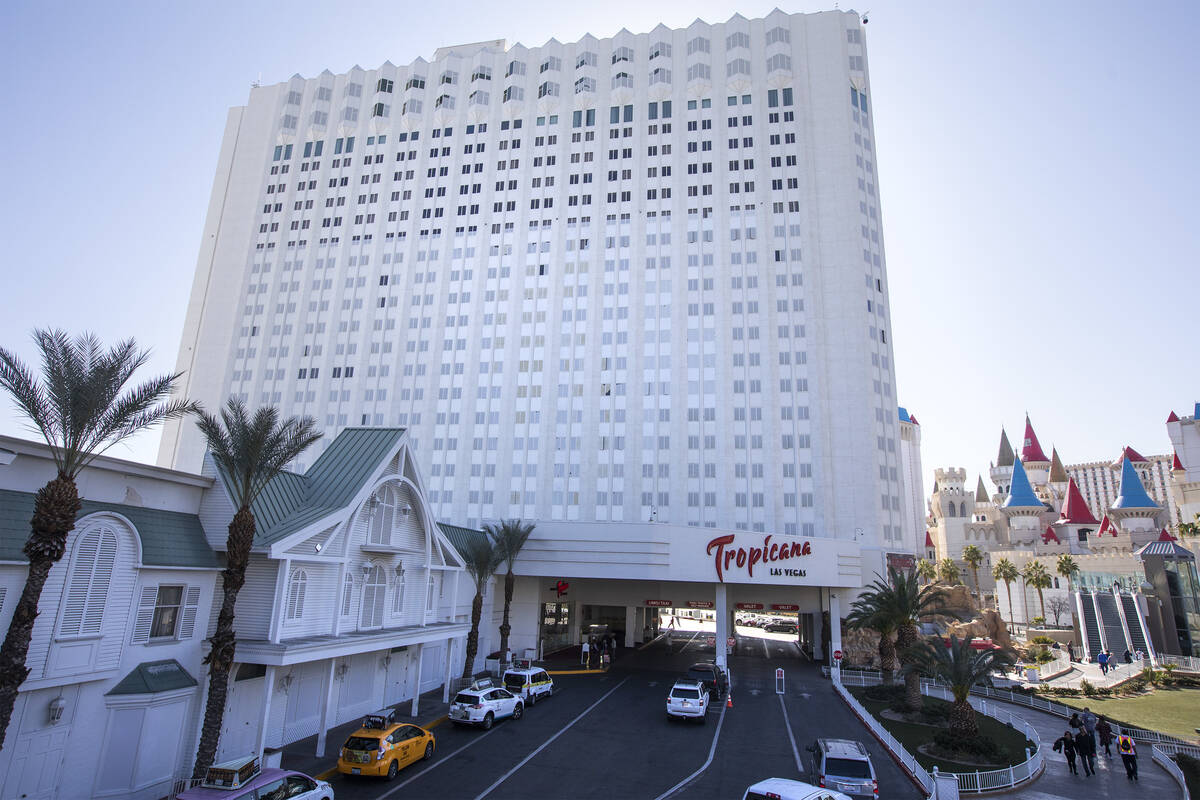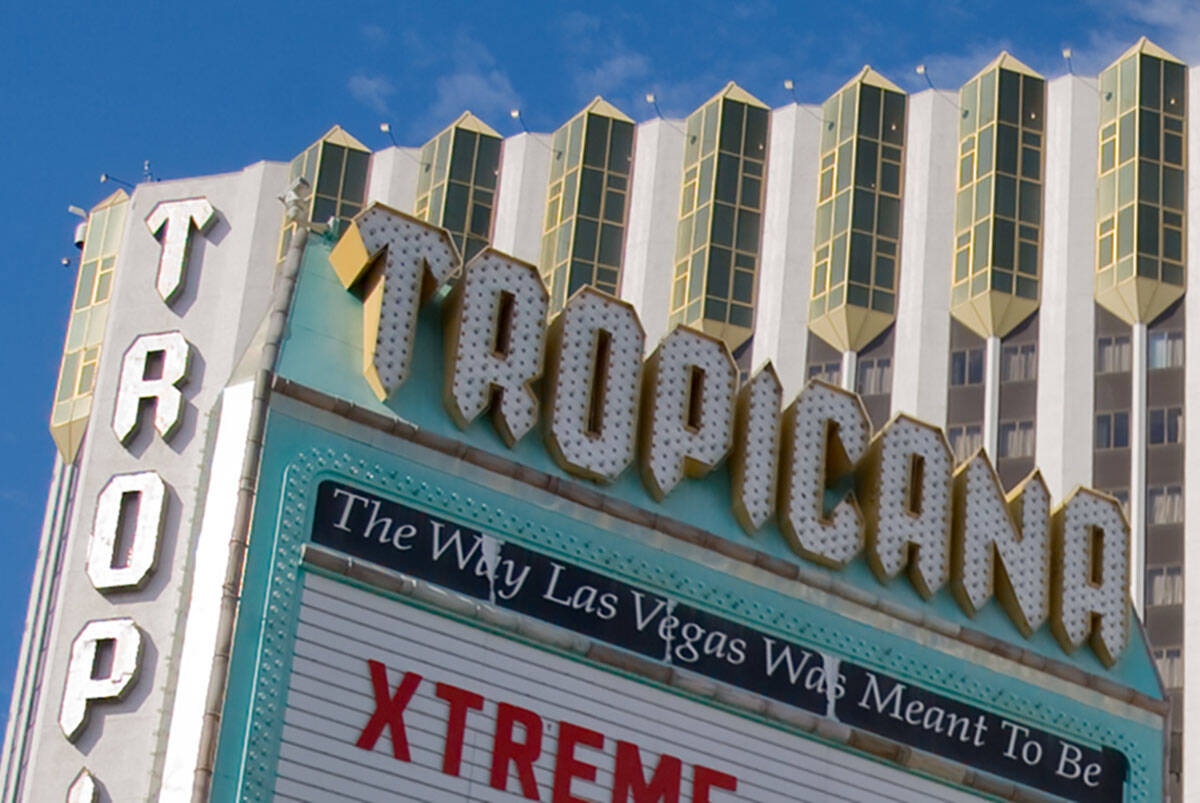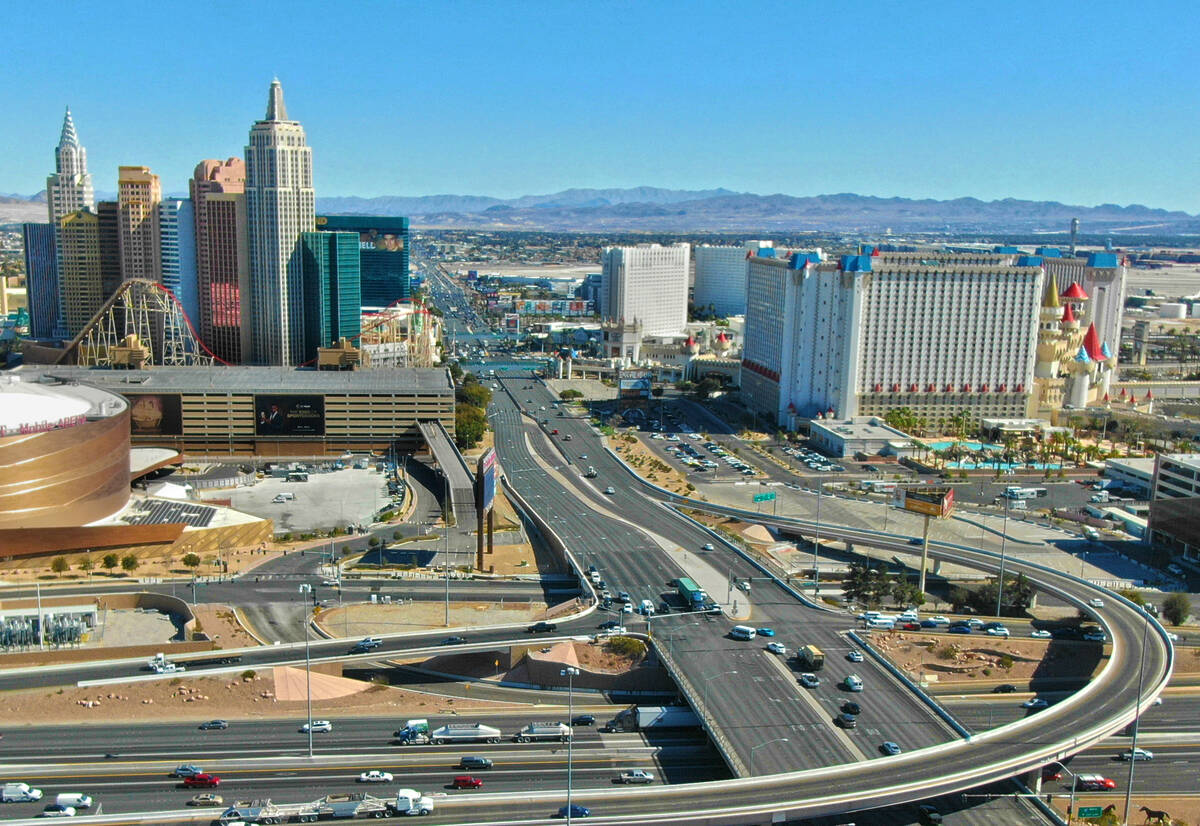RJ exclusive: Bally’s chairman hopes free land helps complete A’s deal
The owners of the Tropicana hope a binding agreement reached with the Oakland Athletics, pledging 9 acres on the Strip free of charge, will help push a planned $1.5 billion MLB ballpark project to completion.
Bally’s Corp. Chairman Soo Kim first told the Review-Journal that the estimated asking price for the land at the Tropicana, located on the south Strip, is worth about $20 million an acre, or a potential $180 million for the 9 acres promised to the A’s.
The agreement comes as state legislators will decide as early as this week the fate of $395 million in public funding for the 30,000-seat stadium. If the public funding is approved, the A’s would provide the remaining $1.1 billion needed to complete the project.
The 35-acre Tropicana site is owned by Gaming and Leisure Properties Inc., Kim said. “We own the buildings and right of use. So it’s us together, that we decided to give these 9 acres to this effort. That’s a contribution. There’s no rent for them (A’s).”
GLPI also would fund up to $175 million in shared improvements in exchange for a rent increase for Bally’s. In 2022, Bally’s entered a 50-year lease agreement with GLPI that’s worth $10.5 million per year.
The deal is reliant upon the A’s landing tax funding from the state and MLB approval for relocation from Oakland to Las Vegas.
“We are pleased to help facilitate their exciting vision for a new ballpark through our contribution of nine acres of that Tropicana site and look forward to the prominent place the overall project will occupy in the Las Vegas skyline,” GLPI Chairman and CEO Peter Carlino said in a statement.
Plea for support
With Bally’s and GLPI willing to give up around $180 million worth of land plus improvements, they hope state lawmakers follow suit by approving up to $395 million for the A’s ballpark. The tax contribution would be funded primarily by a special tax district set up around the stadium site.
“We would love to see some type of similar commitment from the county and state,” Kim said. “That’s a collective community effort to attract all of these franchises and all of the economic activity that comes with it. … We’re planting the flag and hope that everyone gets there.”
Kim noted that the A’s would eventually contribute the land to the Las Vegas Stadium Authority, once the project is completed, similar to the transfer the Raiders executed with Allegiant Stadium.
“I think this is a once-in-a-generation opportunity,” Kim said. “We looked at the situation and we understood that they needed to have some level of help. We said that we can start this process by contributing 9 acres free of charge.”
Kim noted that the situation would eventually benefit Bally’s Corp., as it has plans to build a new hotel-casino on the site’s remaining 26 acres after the stadium is built.
“The reality is that everybody will benefit,” Kim said. “The MGM [Resorts International] has 16,000 rooms on the corners surrounding the site. They’ll be a beneficiary, the whole city and the Strip will be since there is now another reason to visit Vegas.”
MGM Resorts did not respond to request from comment last week on the possibility of its properties’ garages being utilized during A’s games at the proposed Tropicana stadium site.
In an earnings call earlier this month, when the A’s were still thought to be headed for the Wild Wild West site, MGM Resorts CEO Bill Hornbuckle noted he was excited about the visitors the stadium could draw, but said he was not in favor of any public tax dollars going toward constructing the stadium.
Demolition plan in flux
Whether the Tropicana would have to shutter completely or if that could be done in phases as the A’s ballpark plans come to fruition is still being determined, Kim said.
“If we could close it off in phases and still use parts of it while we get started with the demo, do the stadium first,” Kim said. “I think the general thought process is to do the stadium first and to not be in a rush to develop the rest of the site. But I think that is going to be dependent on lots of different factors.”
The Tropicana land announcement came weeks after the A’s said they were set to build a ballpark and entertainment district on 49 acres owned by Station Casinos parent company Red Rock Resorts.
Kim noted Bally’s Corp. has been in discussions with the A’s about the Tropicana site for about two years. Talks finally came to a head this weekend, when a deal was finalized for the site.
The ballpark would be built on the southeast corner of the 35-acre site, with home plate facing northwest toward the Strip, Kim said.
“The site is a square. It’s further to the south and further to the east, so closest to the airport and the furthest away from Tropicana and Las Vegas Boulevard,” Kim said. “From that location you can face toward the Strip. The open outfield will be toward the Strip and the back of it will also face the airport. The back of a stadium is probably best served as a billboard, in a way. Facing the airport will have its own sorts of advantages.”
Kim said he hopes the Nevada Legislature provides public funding to secure the ballpark plan because the A’s could have options outside of Las Vegas and Oakland.
“If this fails, there won’t be another legislative session for 18 months or so,” Kim said. “They might not wait. There might be other cities. … I don’t think we should count on there being expansion. I really truly believe that this is our generational opportunity.”
The Raiders received $750 million in public funding toward Allegiant Stadium construction via a 0.88 percent tax on hotel rooms in Clark County. Kim hopes all involved with approving A’s owner John Fisher’s public funding request see his ask, a tax finance district around the stadium site, in a different light.
“There is a perception amongst the franchise owners that there is some subsidy needed as they build or move,” Kim said. “I’m not saying that’s right or wrong, but I think in the grand scheme of things, relative to all the other franchises, the Fishers are willing to put up as much of their own money to build this thing is pretty impressive. I don’t think this ask feels like anything close to some of the other asks. I think it’s justifiable given the incremental economic incentives.”
Contact Mick Akers at makers@reviewjournal.com or 702-387-2920. Follow @mickakers on Twitter.



